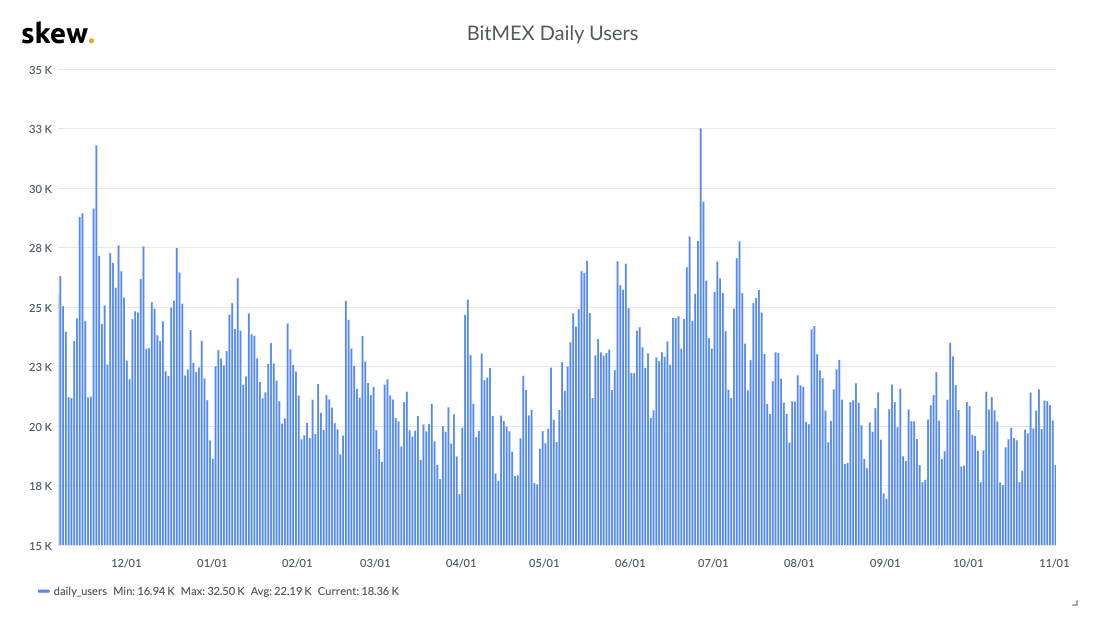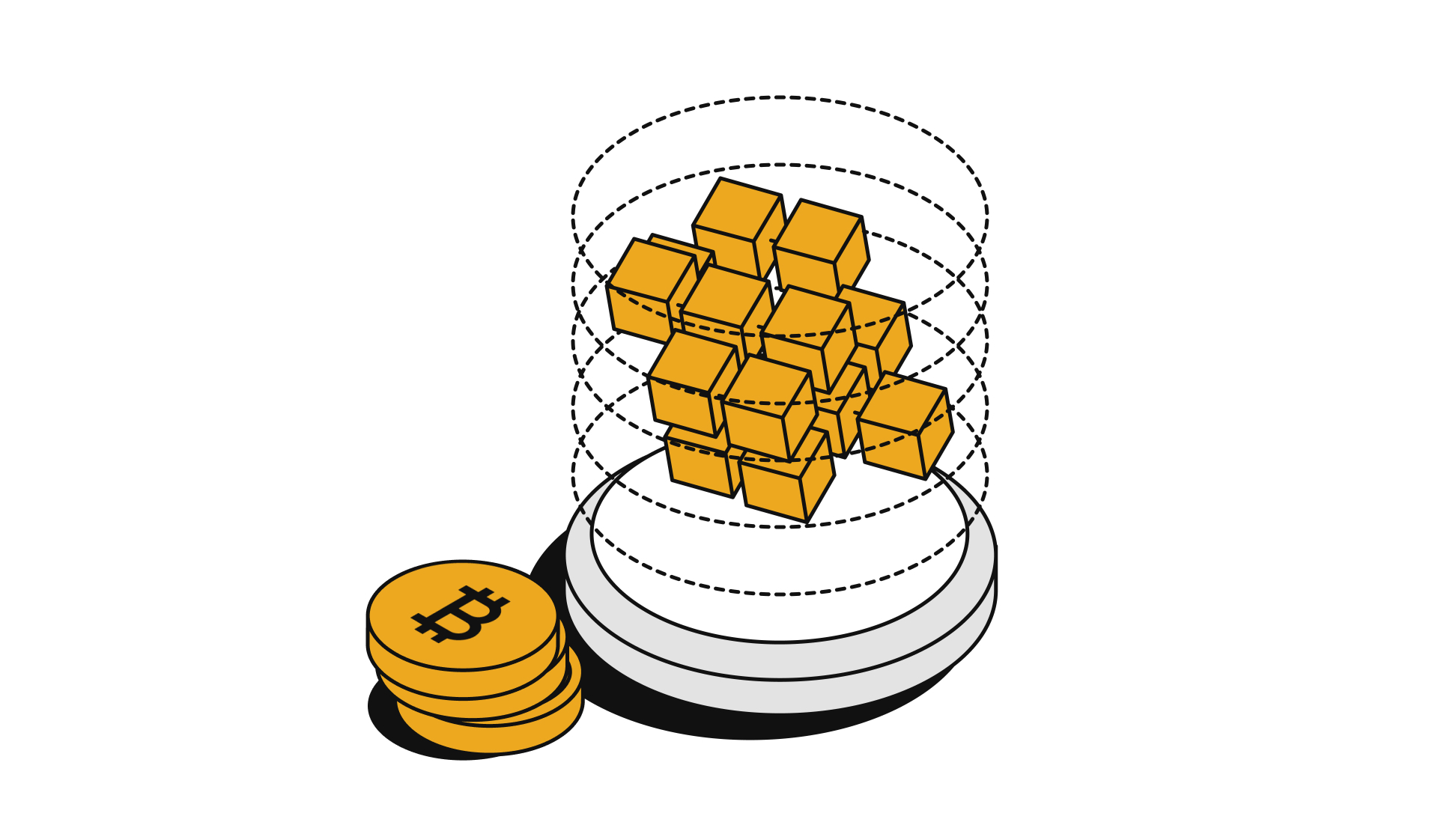Crypto Market Highlights: Bitcoin Anniversary & More
.jpg)


Market Outlook
Last week the entire industry came together to celebrate the eleventh birthday of the Bitcoin white paper on October 31. On October 31 2008, Satoshi Nakomoto — the pseudonymous creator of Bitcoin — posted a white paper entitled "Bitcoin: A Peer-to-Peer Electronic Cash System" to The Cryptography Mailing List with the initial accompanying message being "I've been working on a new electronic cash system that's fully peer-to-peer, with no trusted third party".
Since then Bitcoin has helped spawn a new industry of companies and entrepreneurs involved in decentralized financial value transfer; however, the market did not respond especially well to the white paper's birthday with the exception of Bitcoin Cash — BTC (1.06%), ETH (1.76%), XRP (0.66%), BCH (8.75%), and LTC (5.26%).
Total adjusted transaction volumes fell slightly across the top five crypto assets from $3.02B to $2.94B, with a slight surge on the first day of November — BTC ($2.24B), ETH ($262M), XRP ($218M), BCH ($199M), and LTC ($20.6M).
Podcast - Lessons from Bitwise's Bitcoin ETF Proposal
Over the last week, we launched the first episode of our new podcast series — State of Crypto — in collaboration with Blockworks Group, the premier producer of business events and podcasts for the crypto asset industry. Each week members of the 21Shares team and external guests come together to discuss the most important themes and news events within the industry. Last week Hany and Ophelia, our co-founders, as well as Laurent, our Head of ETPs, were joined by two external guests: Bitwise Asset Management's Global Head of Research, Matt Hougan, and Chapman & Cutler LLP Partner, Barry I. Pershkow.
They discussed the reasons for the Security and Exchange Commission's (SEC) rejection of Bitwise's Bitcoin ETF proposal and what approaches may work going forward. This episode brings together experts on the topic of Bitcoin exchange-traded products and is an exciting listen for anyone who wants to understand the key drivers behind a future possible acceptance of a Bitcoin ETF proposal in the United States. You can listen to the episode on Spotify or Apple Podcasts.
News - BitMEX Exposes Customers' Email Addresses. Deputy COO Says it Affected the 'Majority' of Users | The Block
What Happened?
Crypto asset derivatives exchange BitMEX last week sent a mass email to its users with their email addresses in the "To" field, affecting their privacy. Confirming the issue, BitMEX announced on Friday that it was “aware that some of [its] users have received a general user update email earlier today, which contained the email addresses of other users.”
“The privacy of our users is a top priority and we are very sorry for the concern this has caused to our users,” said BitMEX, adding that it is looking into the matter to identify the root cause. After the publication of this story, Vivien Khoo, deputy COO of BitMEX, told The Block that the email was sent to “the majority of our users, however not all were affected,” adding that the issue occurred due to "an error in the software script used to send the emails.” Khoo further said that no other personal data or account information has been disclosed.
Why Does This Matter?
The news of the BitMEX customer data leak is a reminder of the high-risk nature of the security and operational practices of many exchanges given the relative ease through which several data points (i.e. a customer's email, phone number, or password) could lead to the loss of considerable amounts of money. Such a data breach means that BitMEX's users have an increased chance of being subject to a phishing attack or hacks given that their emails are likely linked to other accounts and profiles. Crypto data provider Skew estimated that the exchange has around 22,000 daily users, though not all of BitMEX's users were affected by the data breach. The chart below plots Skew's estimate of BitMEX's users over time since December 2018.

It is unlikely that this news will do any long-term damage to BitMEX's success as a crypto-derivatives exchange but it does send a signal to the industry that perhaps, on average, its data security practices are not at an adequate level yet — though similar customer data leaks have also occurred outside of the crypto asset industry. The prevalence of security issues on exchanges is one of the many reasons why many in the industry understand the importance of crypto exchange-traded products, which generally take care of many of the security issues that have plagued less well-equipped crypto asset exchanges over the years.
Learn more here.
News - Research Paper Alleges 2017 Manipulation of the Bitcoin Market Despite Doubts from Industry | Bloomberg
What Happened?
A Texas academic created a stir last year by alleging that Bitcoin’s astronomical surge in 2017 was probably triggered by manipulation. He’s now doubling down with a striking new claim: a single market whale was likely behind the misconduct, seemingly with the power to move prices at will.
In the recently-published research paper, Texas Professor John Griffin and Ohio State University's Amin Shams, argued that the alleged market manipulation relied on Tether – the industry's most popular crypto asset.
Tether rejected the claims, with General Counsel Stuart Hoegner arguing in a statement that the paper is “foundationally flawed” because it is based on an insufficient data set. The research was probably published to back a “parasitic lawsuit,” the general counsel added. In addition, there have been some analysts within the industry who have criticized the findings of the paper as being overblown and not providing conclusive evidence that Tether was used to manipulate the Bitcoin market during Bitcoin's surge.
Why Does This Matter?
The research paper argues that "purchases with Tether are timed following market downturns and result in sizeable increases in Bitcoin prices". The paper uses a variety of techniques and heuristics to argue that, instead of the purchases of Tether being a consequence of increases or expectations of an increase in Bitcoin prices (the demand-driven thesis), instead the increases in Bitcoin prices were driven by purchases of Tether (the supply-driven thesis).
The main disagreement from those in the industry thus far has been over the direction of the causal link between changes in Tether supply and changes in Bitcoin's price. In next week's edition of this newsletter, we'll do a deeper dive into the findings of the report and the statistical significance of Griffin and Shams' analysis. The chart below shows net supply increases in Tether over time against Bitcoin's price between 2017 and 2019.
No one doubts that Tether issuances and Bitcoin price returns may have some kind of relationship — this seems to be the case even with a cursory glance at the chart above – however, Griffin and Shams' thesis is a much stronger claim whose validity will undoubtedly be scrutinized in the coming weeks.
Learn more here.
News - Bitmain Seeking US IPO With Confidential SEC Filing | CoinDesk
What happened?
Bitcoin mining giant Bitmain is said to have confidentially filed for an initial public offering (IPO) with the U.S. Securities and Exchange Commission. Sponsored by Deutsche Bank, the offering was filed with the SEC earlier this week before a recent management shakeup saw the ousting of Bitmain co-founder and executive director Micree Ketuan Zhan on October 29, according to Tencent News.
Bitmain will now undergo questioning by the U.S. securities regulator before — if allowed — submitting an F1, a certification required for foreign companies before listing in U.S. securities markets. It’s not clear how much capital the firm is looking to raise through the public offering. Bitmain’s U.S. IPO dreams follow a failed attempt to go public on the Hong Kong Stock Exchange (HKSE) in 2018. The mining giant’s application lapsed in March 2019 and was not re-filed. Bitmain declined to comment on the lapsed application at the time.
Why does this matter?
The news of Bitmain seeking to conduct a US IPO has coincided with news of a disagreement within the executive team — namely the company's co-founders Jihan Wu and Micree Zhan. As reported by CoinDesk, the conflict arose as a result of differences in opinion over the company's round of layoffs in 2018 and has escalated as of late due to the mining firm's subpar 2019. The disagreement, as mentioned before, led to the ousting of Micree Zhan on October 29.
It remains to be seen how this executive shakeup will affect Bitmain's operations and their ability to successful file for an IPO in the United States or elsewhere, but it will likely be another round of unwanted news for the mining giant.
Learn more here.
Disclaimer
The information provided does not constitute a prospectus or other offering material and does not contain or constitute an offer to sell or a solicitation of any offer to buy securities in any jurisdiction.
Some of the information published herein may contain forward-looking statements. Readers are cautioned that any such forward-looking statements are not guarantees of future performance and involve risks and uncertainties and that actual results may differ materially from those in the forward-looking statements as a result of various factors.
The information contained herein may not be considered as economic, legal, tax or other advice and users are cautioned to base investment decisions or other decisions solely on the content hereof.

.jpg)















